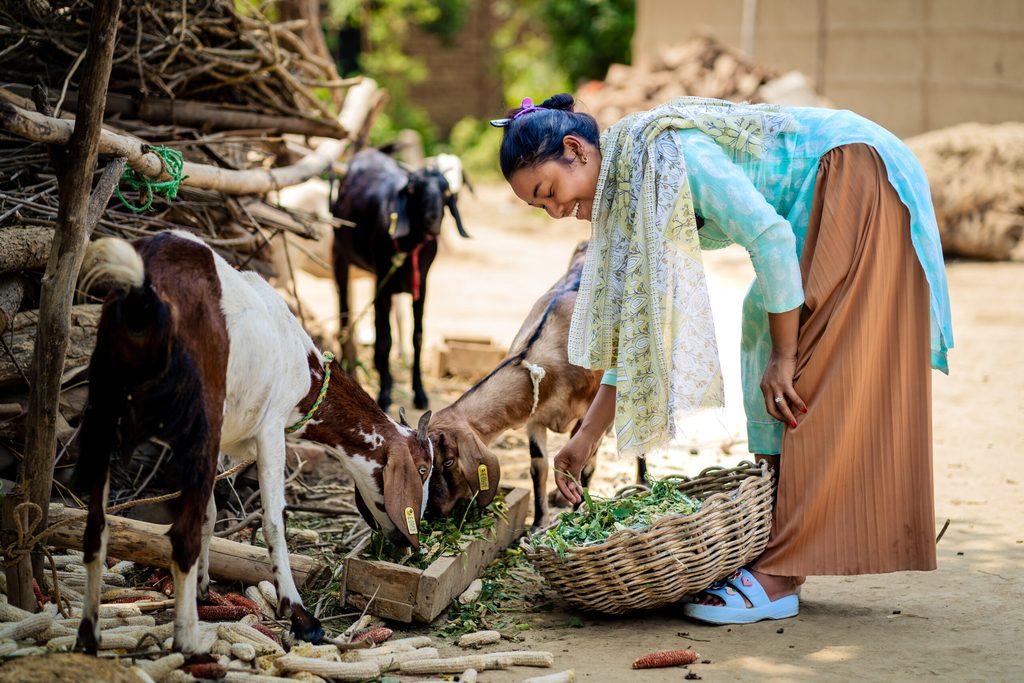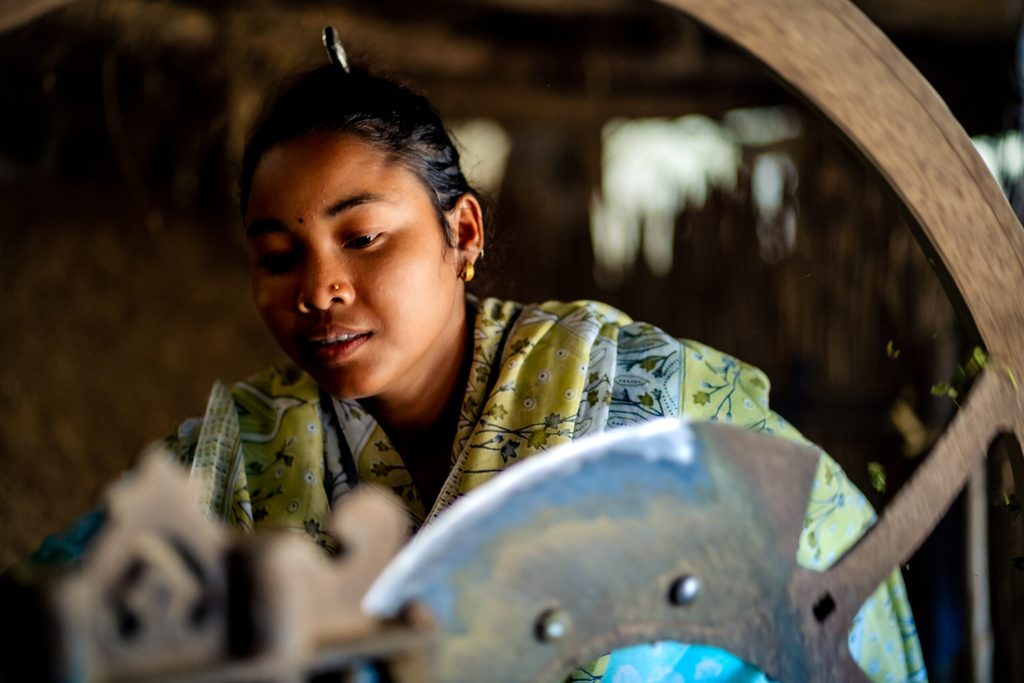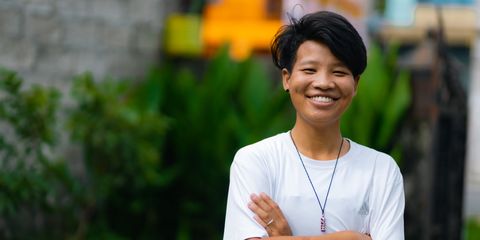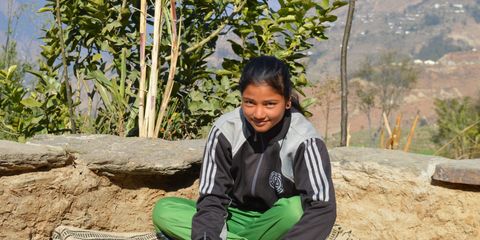Goat farming turns Ajani’s passion into profit
Ajani, a 22-year-old from Bardiya, has expanded her family's goat farming business. She is generating income, supporting her family, and funding her education.

Meet Ajani, a 22-year-old woman from Bardiya district in Nepal who has ambitions to expand her family’s goat farming business. “I have always been interested in goat farming as I grew up watching my parents raise goats at home. I wanted to start my own business, but I didn’t have the financial resources or technical skills,” she explains.
Pursuing passion despite challenges
Ajani’s family earns a small income by rearing goats for sale, and they also farm a small plot of land. But with 8 family members to feed, it’s usually not enough to meet everyone’s needs.
“I have been talking to my parents for years, trying to persuade them to expand our goat farm, where I could support them. But my mother wanted me to concentrate on my education and finish it first,” says Ajani.
Despite her eagerness to help, Ajani was unable to support her parents without the proper guidance and business skills. “That’s why I’ve been looking for ways to learn these skills,” she says. “We do not learn business skills at school so to achieve my dream, I would have to pay for training, but I could not afford it.”
“We do not learn business skills at school so to achieve my dream, I would have to pay for training, but I could not afford it.”
Ajani
In rural communities like Bardiya, there are often barriers that prevent young women from starting new ventures and owning their own businesses. Gender norms and discrimination mean that many do not trust young women’s business skills, believing that they should be married or looking after their families, not running businesses.
Seizing opportunities and learning
“No one would train us in entrepreneurship skills,” says Ajani. “People would not invest in our ventures. They do not trust girls the way they trust boys.”
So Ajani was surprised when, on her way to college one day, she saw a notice on the ward office from Plan International offering training to young women interested in learning business skills in the livestock sector.
“I could not breathe when I read the notice. I immediately enquired about the opportunity,” she says. “I could not believe that the training was free and would give me the chance to invest in my own business.”
Without any hesitation, she applied and was selected to take part in a series of training sessions on commercial goat farming, cooperative development and other topics related to life skills and protection.
“The training was an eye-opener,” Ajani recalls. “I realised that there have been many updates in goat rearing since my parents attended training sessions many years ago. We have not updated our techniques since then. I gained the confidence and know-how to start my own goat farm. It also connected me with like-minded people and a network of mutual support and cooperation.”
“I could not believe that the training was free and would give me the chance to invest in my own business.”
Ajani
Implementing knowledge for growth
Having learnt many new things during the training, Ajani was keen to share her knowledge with her family. “Prevention is better than cure – this also applies to animals. I learned how important it is to provide good, well-ventilated shelter and to clean the pens frequently, maintaining strict hygiene standards. Providing enough food and water is also key, as insufficient or incorrect feeding will weaken the animals. You also have to give them enough time to graze.”
Ajani also developed the much sought-after entrepreneurial skills. “I learned how to access market trends, pricing strategies, customer relations, and basic business management principles relevant to goat farming. We were also trained to keep accurate records of goat stocks, health records, financial transactions, and production data to track progress and make informed management decisions.”
Environmental management was another area which Ajani gained a greater insight. “I was taught about sustainable farming practices, waste management, pasture management, and minimising the environmental impact of goat farming operations.”

Following the training, Ajani received an additional boost from Plan International in the form of 8 goats. Using her newfound knowledge, she set about caring for her new herd and within eight months had produced 11 kid goats, a testament to her dedication and quality of care.
Keeping meticulous records of her expenses and income, Ajani’s commitment is evident. Her aspirations go beyond personal success; she plans to join a cooperative dedicated to girls’ economic empowerment and hopes to continue expanding her farm.
While juggling her studies and farm responsibilities, Ajani built a new livestock shed with the help of her family and now has 9 goats and 19 sheep.
Despite her busy schedule, Ajani’s passion for her animals is evident. “My goats are my pride and joy, as well as my livelihood,” she says. “With my family’s unwavering support, I’ve not only been able to start my own farm, but I’ve also been able to continue my education.”
“My goats are my pride and joy, as well as my livelihood. With my family’s unwavering support, I’ve not only been able to start my own farm, but I’ve also been able to continue my education.”
Ajani
About the project
Child, Not Bride (CNB) is a four-year multi-sectoral project funded by Norwegian State Broadcast Corporation (NRK Telethon), focused on developing youth leadership, and strengthening opportunities for youth economic empowerment. The project teaches young people about their sexual and reproductive health and rights, particularly girls and young women with the aim of addressing child, early, and forced marriage as a barrier to empowerment.
The CNB project provides vocational training on quick income-generating activities and support on starting and improving businesses for households who have adolescent girls in their families. Following the training, each participant receives seed capital to help them open their own businesses or expand existing ones. The project is being implemented by local partner organisations BEE Group in Bardiya and Aasaman Nepal in Dhanusa.


